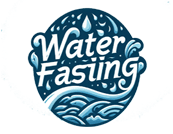Introduction:
Many people turn to water fasting for detox, spiritual clarity, or quick weight loss. While short-term fasting can help reset your system, going without food for too long leads to one major issue — nutrient deficiency. Your body depends on vitamins, minerals, proteins, and fats to function. When you deprive it through water-only fasts, the effects can be harmful instead of healing. In this 600-word article, we’ll explore nutrient deficiency from water-only fasts in a unique, step-by-step, and question–answer style — keeping the keyword water fasting prominent throughout.

Main Points About Nutrient Deficiency During Water Fasting
- What Is Water Fasting?
Water fasting means consuming only water for a certain duration, typically 24 to 72 hours. It gives the digestive system a rest and allows natural detox. But when extended without nutrients, it creates an internal imbalance. - How Nutrient Deficiency Begins
The body stores limited vitamins and minerals. During prolonged water fasting, these reserves run out. Without food, your body lacks proteins for muscle repair, vitamins for immunity, and minerals for nerve and heart function. - Common Nutrients Lost During Fasting
Long water fasting causes deficiencies in:- Vitamin B12 – leads to fatigue and nerve issues.
- Iron – causes weakness and low red blood cell count.
- Calcium & Magnesium – essential for bone strength and heart rhythm.
- Sodium & Potassium – maintain hydration and prevent muscle cramps.
- Physical Effects of Deficiency
Weakness, muscle cramps, dry skin, brittle nails, dizziness, and irregular heartbeat are common. Over time, water fasting without nutrients can harm vital organs and lower immunity. - Mental & Emotional Effects
Nutrient loss affects brain chemistry, causing irritability, poor focus, and mood swings. Extended water fasting can even lead to brain fog or confusion due to low glucose levels.
Step-by-Step Guide to Prevent Nutrient Deficiency During Water Fasting
Step 1: Prepare Your Body Before Fasting
Reduce caffeine, processed food, and sugar 2–3 days before water fasting. Eat nutrient-rich foods like fruits, vegetables, and whole grains to build reserves.
Step 2: Limit the Duration
Keep water fasting between 24 to 48 hours. Longer fasts should only be done under professional supervision. The longer the fast, the greater the nutrient loss.
Step 3: Stay Hydrated — But Smartly
Drink pure water regularly, but not excessively. Overhydration can flush out essential electrolytes like sodium and potassium, worsening deficiency.
Step 4: Listen to Your Body
If you feel extreme weakness, dizziness, or irregular heartbeat, stop water fasting immediately. These are signs your body is low on nutrients.
Step 5: Break the Fast Gradually
After water fasting, start with light liquids like fresh fruit juice, vegetable broth, or coconut water. These restore minerals safely without shocking your system.

Step 6: Rebuild Nutrition Post-Fast
Once your digestive system is ready, eat soft, nutrient-dense foods like boiled vegetables, oats, yogurt, and bananas. These help your body recover from the effects of water fasting.
Questions and Answers About Nutrient Deficiency and Water Fasting
Q1: Can short water fasting cause nutrient deficiency?
A: Short-term water fasting (under 48 hours) rarely causes major deficiency, but doing it repeatedly without proper recovery can reduce your vitamin and mineral reserves.
Q2: What are the symptoms of nutrient loss during fasting?
A: Fatigue, dizziness, dry mouth, hair loss, muscle cramps, and poor focus are warning signs of deficiency during water fasting.
Q3: Can I take supplements during a water-only fast?
A: Ideally, pure water fasting excludes supplements, but for safety, supervised fasts may allow minimal electrolyte or mineral intake to prevent serious imbalance.
Q4: How long does it take to recover nutrients after fasting?
A: For most people, 2–5 days of balanced eating can restore key nutrients lost during water fasting, depending on how long the fast lasted.
Q5: What foods should I eat after fasting to regain nutrients?
A: Focus on fruits, leafy greens, soups, and protein sources like eggs, lentils, and nuts. These replenish what your body lost during water fasting.
Water fasting can be beneficial when done briefly and mindfully — it allows the body to detox and refresh. But prolonged water-only fasts without supervision can cause severe nutrient deficiencies that harm your physical and mental health.
The secret to safe fasting is balance, not deprivation. Always listen to your body, stay hydrated, and nourish yourself properly before and after the fast. Remember: water fasting should heal, not hurt. A well-planned approach can help you enjoy the benefits of detox without losing your strength, clarity, or health.

